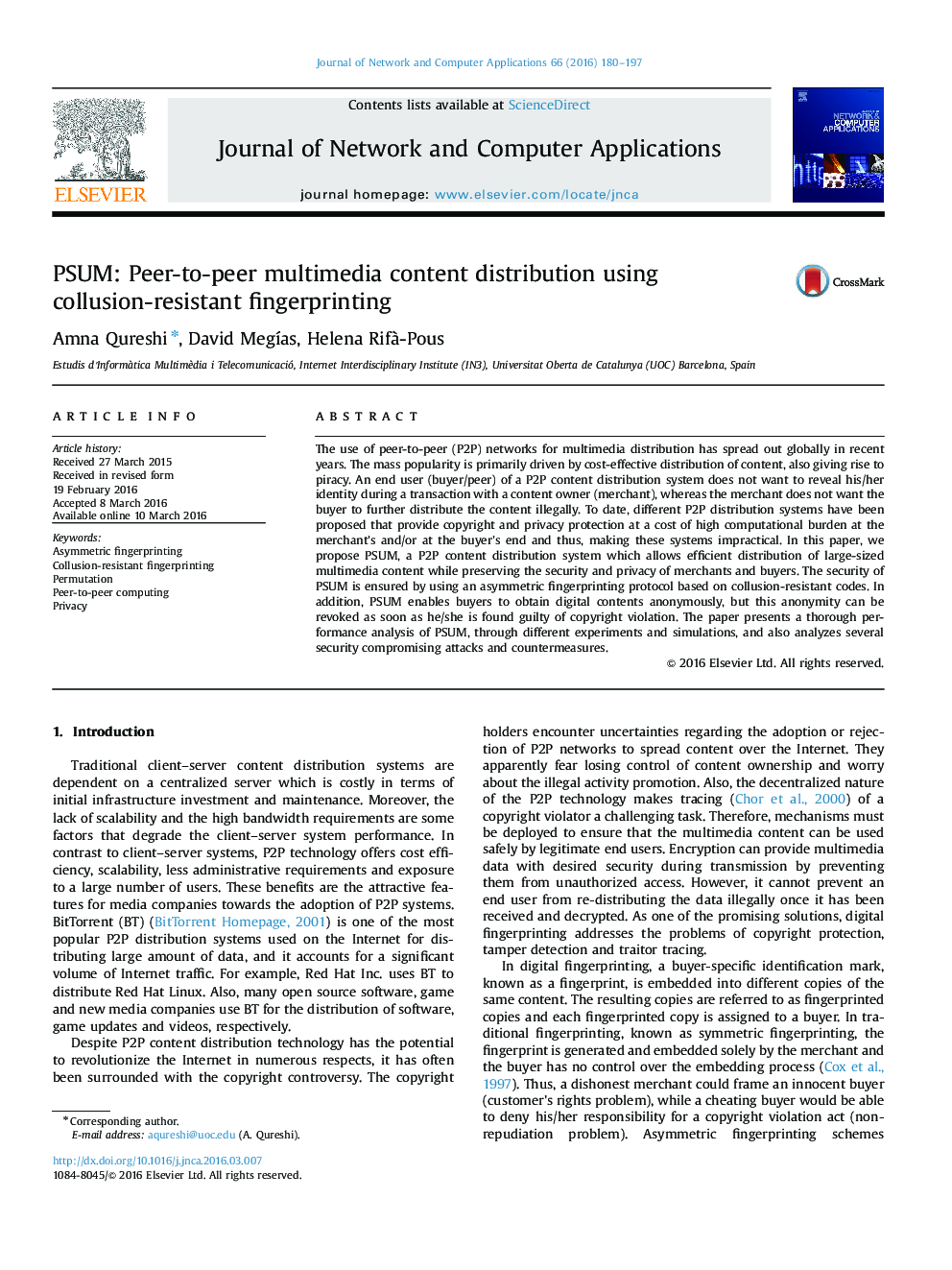| Article ID | Journal | Published Year | Pages | File Type |
|---|---|---|---|---|
| 459359 | Journal of Network and Computer Applications | 2016 | 18 Pages |
•Cost-effective method for merchants to distribute large-sized multimedia contents.•Novel asymmetric fingerprinting scheme based on permutation and symmetric encryption.•P2P-based distribution with collusion-resistant fingerprinting and revocable privacy.•Security analysis of the scheme against various security compromising attacks.•Experimental evaluation shows the computational and communication efficiency.
The use of peer-to-peer (P2P) networks for multimedia distribution has spread out globally in recent years. The mass popularity is primarily driven by cost-effective distribution of content, also giving rise to piracy. An end user (buyer/peer) of a P2P content distribution system does not want to reveal his/her identity during a transaction with a content owner (merchant), whereas the merchant does not want the buyer to further distribute the content illegally. To date, different P2P distribution systems have been proposed that provide copyright and privacy protection at a cost of high computational burden at the merchant׳s and/or at the buyer׳s end and thus, making these systems impractical. In this paper, we propose PSUM, a P2P content distribution system which allows efficient distribution of large-sized multimedia content while preserving the security and privacy of merchants and buyers. The security of PSUM is ensured by using an asymmetric fingerprinting protocol based on collusion-resistant codes. In addition, PSUM enables buyers to obtain digital contents anonymously, but this anonymity can be revoked as soon as he/she is found guilty of copyright violation. The paper presents a thorough performance analysis of PSUM, through different experiments and simulations, and also analyzes several security compromising attacks and countermeasures.
